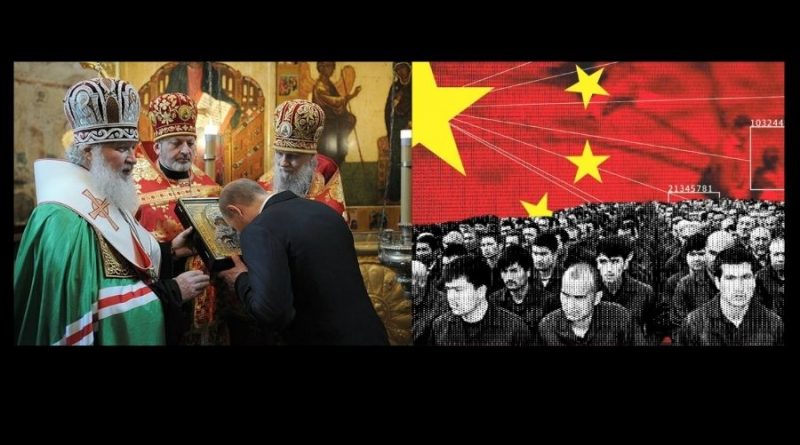Putin Venerates the Virgin Mary, while China hides a million people in Concentration Camps – USA media and ruling elites fear Russia as last defender of Christianity on planet – ignore China story
On Wednesday, July 1, 2021 Russians surprised the world and triggered USA media after voting to approve a series of amendments to the Russian constitution. Among them is the mention of “faith in God” and definition of marriage as a union between a man and a woman.
Cynical media in the west wrote off the efforts as just “crowd pleasers to ensure a higher turnout for a popular vote” that would enhance Vladimir Putin’s re-election prospects when his term expires in 2024.
But the truth is these amendments are inline with prior steps to position Putin as the leader of the Christian world and defender of traditional morals. Andre Shirin writes: “As I argued earlier, faith in Russia is considered a political and public matter, not a private matter as it tends to be perceived in the West.”
And this is at the root of USA’s obsession to demonize Russia. Russia is the last powerful defender of Christianity on the planet and Western secular society seeks to destroy it.
We see evidence of this today. BBC published an epic investigative report on hidden concentration camps in China and the story has all but been ignored in USA while there continues to be daily reports in Western Media about anti-Putin protests. (see below)
Russia moves to extinguish pro-Navalny ‘flashlight’ protests

MOSCOW (AP) — When the team of imprisoned Russian opposition leader Alexei Navalny urged people to come out to their residential courtyards and shine their cellphone flashlights in a display of unity, many responded with jokes and skepticism. After two weekends of nationwide demonstrations, the new protest format looked to some like a retreat.
But not to Russian authorities, who moved vigorously to extinguish the illuminated protests planned for Sunday.
Officials accused Navalny’s allies of acting on NATO’s instructions. Kremlin-backed TV channels warned that flashlight rallies were part of major uprisings around the world. State news agencies cited unnamed sources saying a terrorist group was plotting attacks during unapproved mass protests.
The suppression attempts represent a change of tactics for the authorities who once tried to weaken Navalny’s influence by erasing him.
Kremlin-controlled TV channels used to largely ignore protests called by Navalny. Russian President Vladimir Putin has never mentioned his most prominent critic by name. State news agencies referred to the politician and anti-corruption investigator as “a blogger” in the rare stories they ran mentioning him.
“Navalny went from a person whose name is not allowed to be mentioned to the main subject of discussion” on state TV, Maria Pevchikh, head of investigations at Navalny’s Foundations for Fighting Corruption, said in a YouTube video Friday.
China’s Concentration Camps Special BBC Report
There are more than 10 million Uighurs in Xinjiang.
They speak a Turkic language and resemble the peoples of Central Asia at least as much as they do China’s majority population, the Han Chinese.
The southern city of Kashgar, it is often pointed out, is geographically closer to Baghdad than it is to Beijing – and it sometimes feels culturally closer too.
And with a history of rebellion and resistance to Chinese rule, the relationship between the Uighurs and their modern-day political masters has long been as fraught as it is distant.
Before Communist rule, Xinjiang occasionally slipped from China’s grip with brief periods of independence. Ever since, it has constantly tested that grip with sporadic outbreaks of protest and violence.
The mineral wealth – in particular oil and gas – of a region almost five times the size of Germany has brought huge levels of Chinese investment, rapid economic growth and large waves of Han Chinese settlers.
Resentment among Uighurs over the perceived uneven distribution of the proceeds of that growth has simmered.
In response to such criticisms, the Chinese authorities point to rising living standards for Xinjiang’s residents.
But in the past decade or so, hundreds of lives have been lost to a mixture of riots, inter-community violence, premeditated attacks and the police response.





